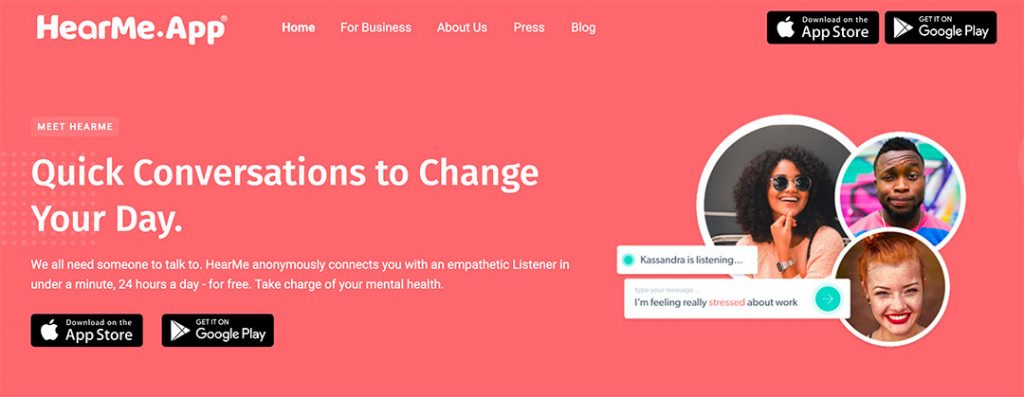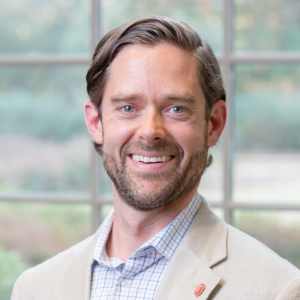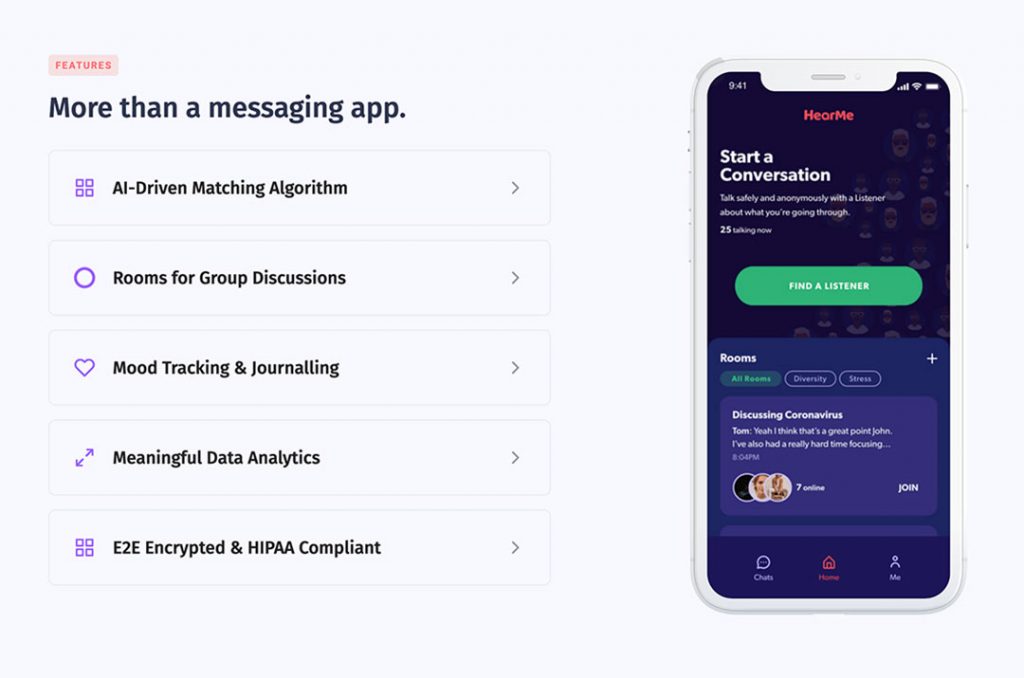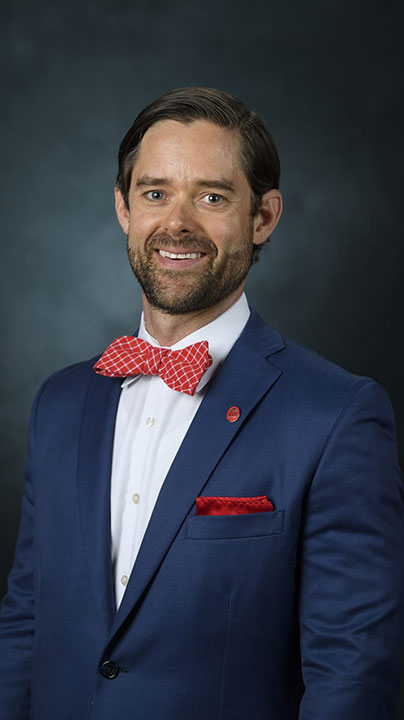
As we continue to be separated from each other due to COVID-19, several studies have documented increased levels of depression, stress and anxiety, and decreased levels of general mental well-being among students.
A University of Mississippi School of Journalism and New Media professor is hoping to change that by partnering with creators of an app that provides free emotional support. Professor Graham Bodie, Ph.D., is also seeking students from the school willing to participate as listeners through the app for other students in need.

Graham Bodie
The HearMe.App, created by Adam Lippin and his team,
allows people to seek and receive support at any time. Users download the app to their Android or Apple device, specify their preferred listener type (male-female, age range, time availability to chat, etc.), and either identify a topic for conversation or begin chatting.
“All conversations are text-based, and listeners go through minimal training in active and reflective listening before they are allowed to interact with users,” Bodie said. “To date, over 54,000 conversations have taken place on the app with 94 percent of support seekers reporting they ‘felt better after one chat.’”
At the outset of the pandemic, the HearMe.App team commissioned a survey of 350 American adults, Bodie said. Results indicated that a majority of 18- to 24-year-olds reported feeling less connected than before the pandemic, compared to a majority of those over 35 who reported feeling more connected.

“Those in the traditional college-aged cohort were the least satisfied with the emotional support they are currently receiving and more readily identified texting to be a viable means of seeking support (again, compared to those in older age cohorts),” Bodie said. “Our current studies thus target a key demographic likely to benefit the most from digital forms of emotional support.”
The studies will take place at the University of Mississippi and University of Minnesota. They will examine whether broad-based, communal emotional support, delivered through a free app, can mitigate stress among college students and the negative mental health effects of social isolation and loneliness resulting from the COVID-19 pandemic.
By any number of measures, 2020 was stressful, and 2021 might be best described as “the year of loneliness” if we continue to be separated from each other due to COVID, Bodie said.
“In March, U.S. American higher education institutions closed down most campus operations and dormitory housing, and began encouraging or mandating online courses in an effort to manage the rapidly spreading COVID-19 pandemic,” he said. “By April, it was clear students were unlikely to return to campus for the remainder of the spring semester. As summer turned to fall, students continued to remain isolated, either at home or in a restricted and curfewed campus community.”
Bodie said general population studies find younger age groups reporting more impact from COVID-19 than older age groups, and students from disenfranchised groups are even more at risk of suffering from the consequences of the pandemic.
“Although most colleges and universities offer formal sources of support, these resources are generally underutilized,” he said.
Even if universities were able to convince more students to use mental health services, Bodie said the staffing alone would overwhelm personnel and overextend the financial capacities of higher education budgets. One answer to assisting students through crises is to strengthen social support networks.
Receiving high-quality support from friends and other informal help providers is vital for student coping, he said. However, COVID-19 precautions have disrupted students’ channels of seeking support. Some students are now socially isolated from peers, roommates, family members, and co-workers; and their social life has declined since March 2020.

Bodie said scholars are increasingly recognizing the need for colleges and universities to prioritize early prevention and intervention programming through platforms that allow students to adequately manage their mental health on or off campus.
He is looking for students to become listeners. While some might only be available for one session each week, others may have a few hours weekly to devote to the project.
“First, it does not take long to be a supportive shoulder for people, a keen ear available to listen in times of stress,” Bodie said. “Second, we hope students will seek support through the application as the semester progresses, whether they sign up as a listener or not.”
- If you are interested in participating as a listener, click this link to answer the following short survey to get started.
- Volunteer to “listen” on the app by emailing Bodie at at gbodie@olemiss.edu.
For more information about our journalism or integrated marketing communications programs visit jnm.olemiss.edu or email jour-imc@olemiss.edu.


